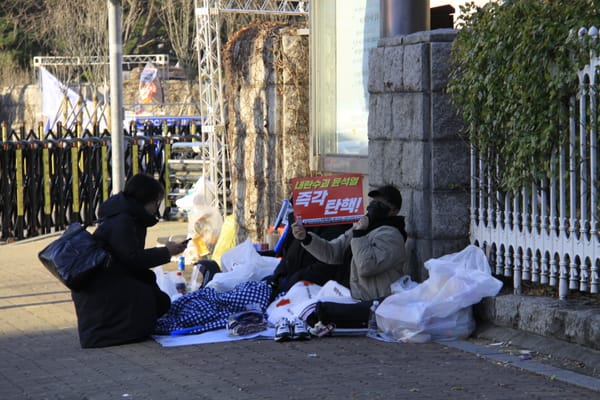Asia Undercovered Round-up: 31 May 2021
This week: Another undercovered cyclone hits India, the battle for influence in Laos, and a depressing Presidential poll from the Philippines
Undercovered last week
Very worrying news from Bangladesh, a country’s whose authoritarian slide gets little attention. A well-known journalist, Rozina Islam, has been arrested under the colonial-era Official Secrets Act – a move many see as blatant censorship (Dhaka Tribune).
For Muslims, Eid-al-Fitr is usually a celebration. For for Muslims Uyghurs, though, it’s another reminded of how their religion has been made, essentially, illegal. Staged “festivities” lack young people, prayer, beards or any festive spirit, in a region where Imans are in jail, Mosques are being destroyed, and owning the Quran is a crime (China Digital Times).
It’s little better in Tibet, where news broke that yet another political prisoner has died in detention after being severely tortured. His crime? Opposing a Chinese re-education campaign (Choekyi Lhamo, Phayul).
An unfortunate reality in Asia is that well-meaning conservation efforts are often a threat to indigenous peoples. That’s the case in northern Thailand, finds Nanticha Ocharoenchai, as locals are being evicted from the land they’ve lived on – and protected – for generations (Climate Tracker).
In northern Pakistan, local farmers are switching from crops to fish, partly due the impacts of climate change. But that comes with its own set of sustainability issues. In this piece for The Third Pole, Atika Rehman and P M Baigal argues for greater awareness of fish farming’s environmental consequences.
I’m a sucker for map stories, and enjoyed this one, looking at Cambodia’s capital, Phnom Pehn, and how its evolved. The city seems quite unrecognizable from when I last visited in early 2007 (Southeast Asia Globe).
Another week, another cyclone. This one hit the Indian state of Odisha, resulting in widespread damage and more than a 500,000 million evacuations. It was, like nearly every disaster to hit Asia in the past year, undercovered (Ashis Senapati, Down to Earth).
Elections
This is a depressing poll. The two leading candidates for next year’s Philippines presidential election are the daughter of current president Rodrigo Duterte, and the son of former dictator Ferdinand Marcos.
What is the future for Thailand’s youth-driven democracy protests? In this piece, Penchan Proborisut argues that they may fizzle, but that political contention will continue as activists employ decentralized tactics to continue to mobilize (East Asia Forum).
Geopolitics
A fight for influence in Laos. Traditionally close to its neighbor, Vietnam, it has lately shifted to China due to massive investments in infrastructure. In this piece, Nguyen Khac Giang explores the state of this relationship and how Vietnam aims to maintain its influence across the border.
The revival of the Quad – a security alliance between the US, Japan, India and Australia, questions the relevance of existing players, like ASEAN, led by Indonesia. In this piece, Arrizal Jaknanihan looks at Indonesia’s failing leadership and what it can do to maintain influence in the region, especially as China’s influence grows (New Mandala).
Solutions Stories
Sustainable framing and local economies can prove resilient. That is how 5000 women farmers in South India were able to thrive despite pandemic lockdowns and travel restrictions, reports Karthikeyan Hemalatha for Mint Lounge.
What I wrote
Once a month, I share a few of my features from my reporting on Asia.
For RFA, I wrote about Chinese investment is keeping coal burning across SE Asia, and how increasingly its the only funder willing to prop up this dirty fossil fuel.
Sustainable supply chains are key to addressing environmental and human rights concerns. For Triple Pundit I wrote about a relatively new initiative, the Global Platform for Sustainable Natural Rubber, which aims to enable better practices in the growing of rubber in Indonesia, Malaysia, and Thailand.
Asia Undercovered: Weekly round-ups and in-depth analysis of the news, events, trends and people changing Asia, but not getting enough attention in the US media.



